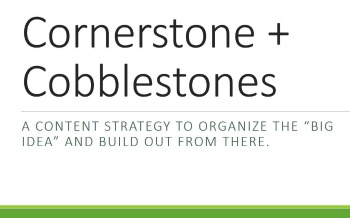Dove bar or Dial soap? Charmin or Quilted Northern? Nissan Sentra or Toyota Corolla?
So you’re probably thinking that I’ve either lost my mind or I’m conducting a bizarre survey. (Neither). Don’t worry. This blog post isn’t going to focus on consumer product choices. But it’s all about choice, and differentiation, and how to keep your customers coming back.
There was a discussion recently in one of my private Facebook groups around how to keep other consultants from stealing your clients. Simple answer: do good work. Simpler answer: you can’t.
You can no more stop a client from changing firms than Mars can stop someone from switching from M&M’s to Reese’s Pieces (and uber-competitor Hershey’s).
Your competition isn’t the problem.
If you’re in business, you have competition. Even charitable organizations have competition. Think limited donor dollars, for example. So why do donors (or clients, or customers, or patients, and so forth) choose you?
Understanding your competition is essential, and you can often learn from studying what they’re doing, how they’re innovating, and why they’re making certain strategic choices. Maybe there’s something there you can adapt and improve. But if all you’re doing is copying the competition, what’s your point of differentiation?
Plus, over-focusing on the competition means you’re not focusing enough on yourself.
Do good work.

The best way to keep your customers is to do good work.
Provide a killer product. Offer exceptional services. Understand the components of business trust.
And realize that people, process, product, price, and personality all play a part in who selects you — and who stays with you.
Be responsive (and I don’t mean 6 a.m. phone calls).
Think with Google reported out from the Consumer Electronics Show that being helpful will differentiate your brand from your competition. During a CES panel discussion, Google President of the Americas Allan Thygesen said:
“When we want something, we expect our phone to tell us where the product is being sold at a store nearby, and even tell us if it’s in stock this very moment. And when we are ready to transact, we expect it to be frictionless and fast… Assistance is really the new battleground for growth. As expectations of the empowered consumer continue to rise, the most assistive brands will win.”
While Thygesen’s remarks are specific to consumer brands, his broader point applies to every business in the digital age. Whether you’re a digital business or not, your customers’ expectations are shaped by the experiences they get shopping at Amazon. It’s akin to when brick-and-mortar retail stores were shaken by Nordstrom’s laser-like attention to customer service.
Sure, that might not be fair. But you want to keep your customers, right?
The key to success isn’t to ignore the impossible. Most of us don’t have 24/7 call centers, and we don’t need them. It’s not about mimicking Amazon; it’s about identifying your version of responsiveness.
Focus on your business and your customers. Don’t give people a reason to look around.
Awesome by Jon Tyson (Unsplash).



